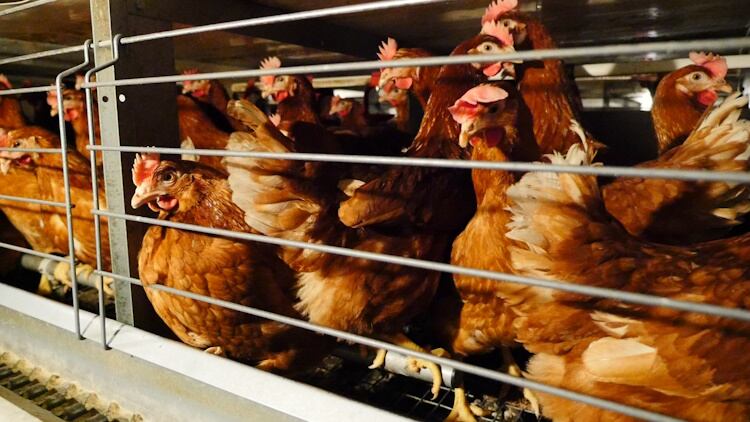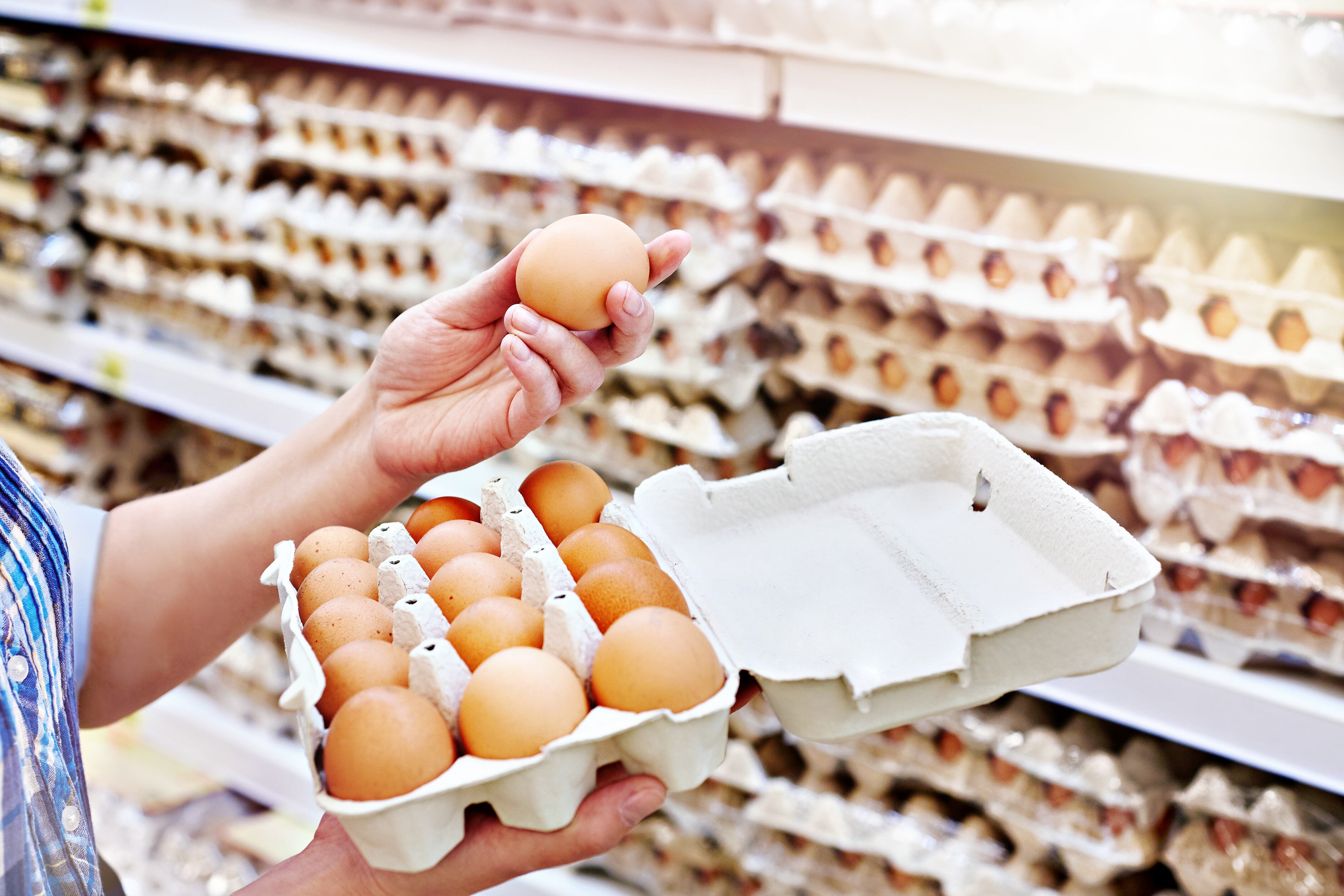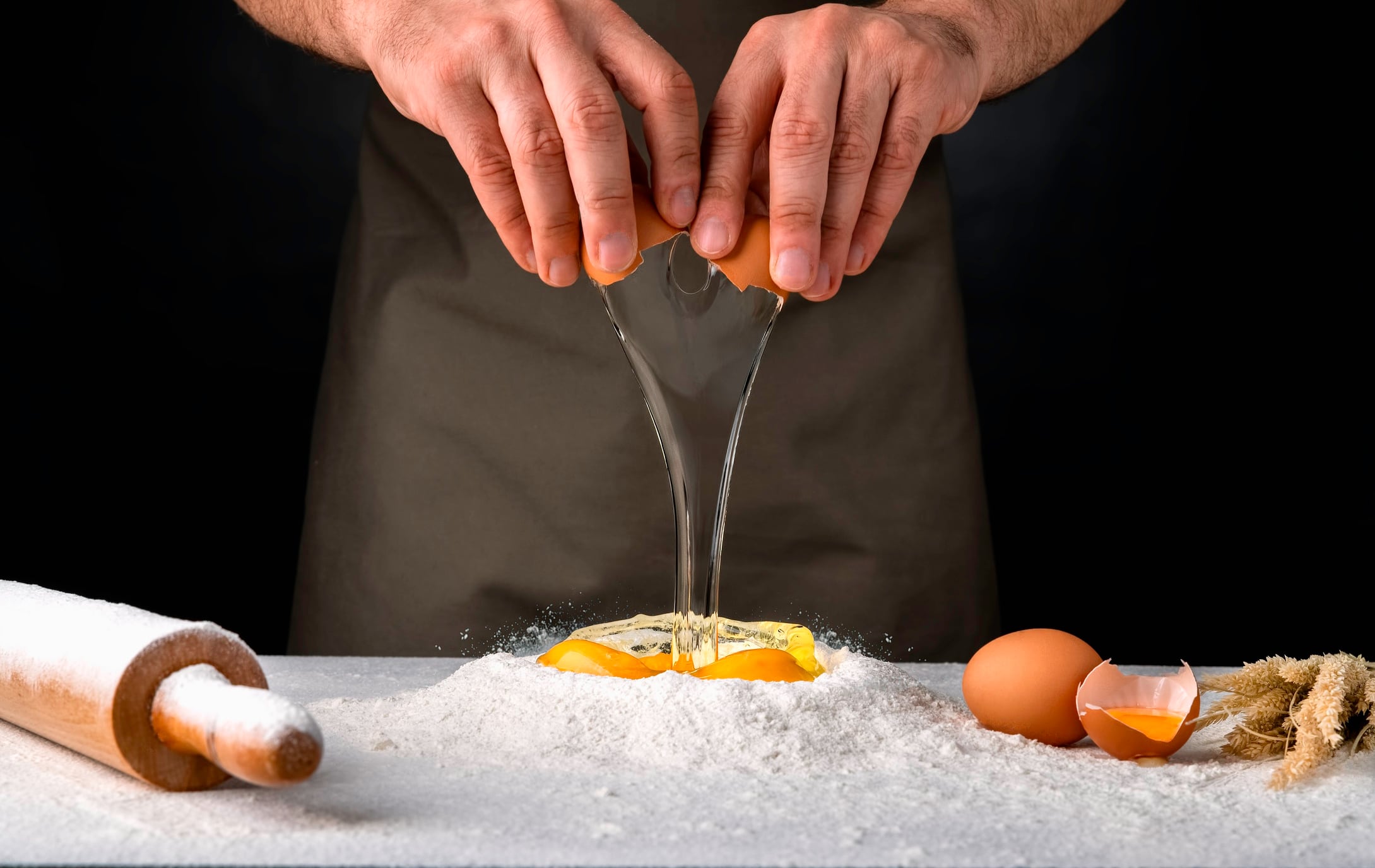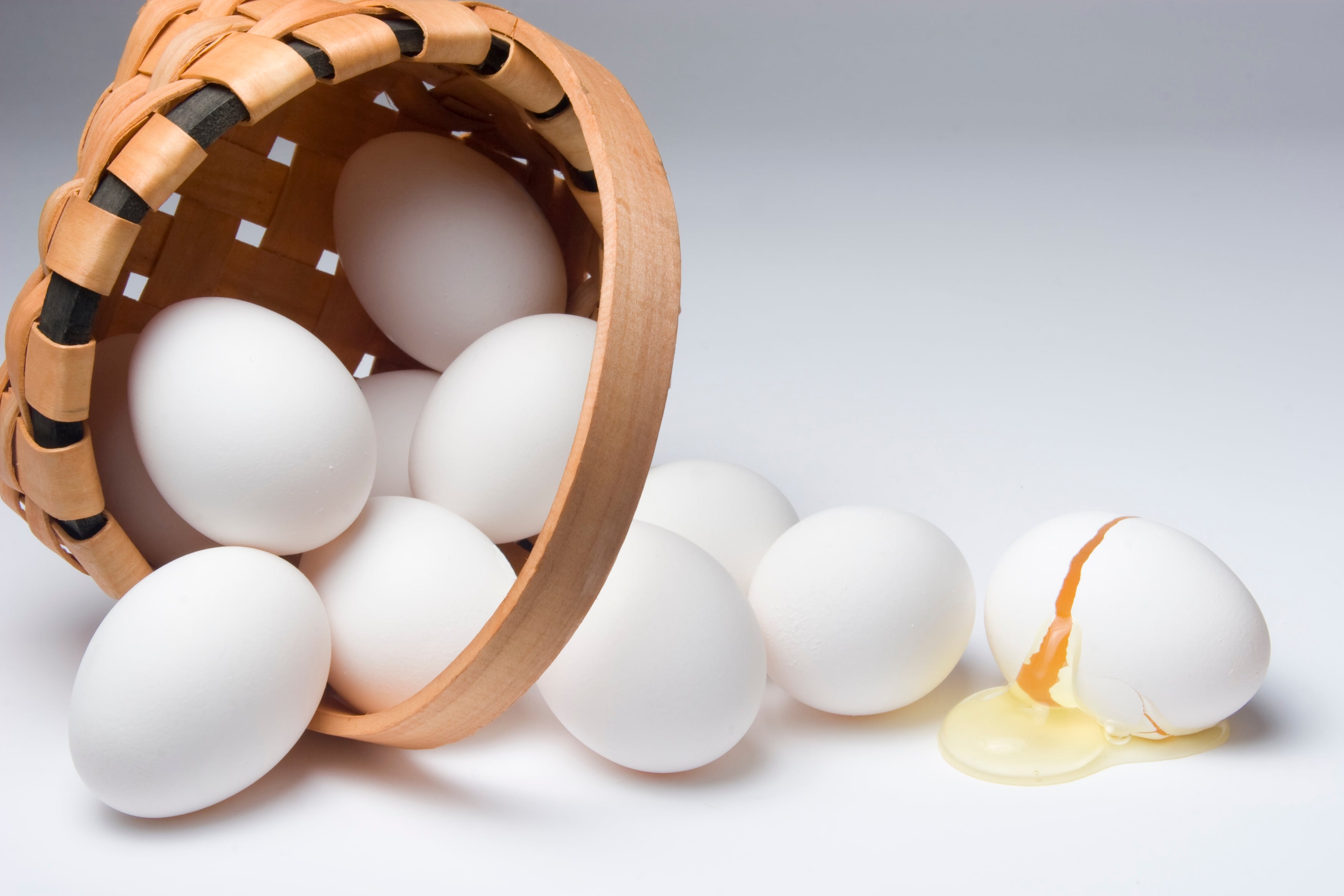The clock is ticking and as 1 December draws near, the scramble is real for Britain’s biggest food players. Just months remain for companies to prove they can turn promises into progress. Some are flying the coop. Others are scratching around. And a few might find themselves publicly pecked apart for falling short.
Momentum has been building for years, driven by intensifying consumer demand, evolving welfare expectations and a wave of corporate commitments made in the mid-2010s.
According to Compassion in World Farming (CIWF), 82% of the UK egg industry had already transitioned to cage-free production by March 2025. It’s a cracking achievement but there are still feathers to ruffle before the industry can truly crow about success.
Cage-free systems allow hens to roam within barns and express natural behaviours like perching, nesting and dust bathing. In contrast, battery and enriched cages restrict movement and have been widely condemned as inhumane both by welfare organisations and the public.

Across Europe, a clear pecking order is forming. Austria banned enriched cages back in 2020 and several of its neighbours are preparing to follow suit. Germany, the Czech Republic, France and Belgium’s Wallonia region have all committed to phasing out cages entirely by 2028. While the shift remains voluntary in the UK, campaigners are urging Defra to catch up and calling on the European Commission to enshrine cage-free standards into law.
Meanwhile, UK consumers are firmly on side. A CIWF-commissioned poll in late 2024 found 75% of Brits believe cages are cruel and 67% would willingly shell out more for eggs laid by hens with space to move and flap.
So, with all this momentum and nearly a decade of notice, why are some companies still dragging their feet?
“There’s no excuse for delay,” said Dr Tracey Jones, CIWF’s global director of Food Business. “The UK is at a tipping point for cage-free eggs. With a growing number of companies already meeting their commitments and a significant percentage of supply already cage-free, now is the time to act.”
Who’s cracking on and who’s cracking under pressure?

CIWF’s most recent UK EggTrack Spotlight, published in November 2024, assessed 40 major UK food companies. The findings were a mixed basket. Nineteen companies were recognised as leaders, having reached and maintained 100% cage-free sourcing – often for several years. These included household names like Waitrose, M&S, Sainsbury’s, Co-op, Greggs, McDonald’s, Pizza Express and Greene King.
“The companies that are on track made early, strategic commitments and backed them up with investment and planning,” Dr Jones told this site. “They worked closely with suppliers, got the whole supply chain on board and made sure everyone was pulling in the same direction.
“These companies also brought their customers along on the journey. They used clear labelling and marketing to build awareness, helped consumers understand the value of cage-free eggs and demonstrated transparency at every step.”
Tesco and Whitbread PLC are getting closer but haven’t yet hit the target. And although CIWF’s latest EggTrack places Aldi UK in the same ‘in progress’ basket, the retailer told this site it actually met its commitment to sell 100% cage-free whole eggs in August 2024, more than a year ahead of schedule. “All of Aldi’s own-brand shell eggs in the UK are either free-range or organic,” a spokesperson said, noting the supermarket has invested over £50 million in UK egg farming and producers in the past two years. Aldi also supports its suppliers through long-term contracts, giving them the stability to invest and grow.
Others are still playing catch-up. Lidl GB, which was categorised as ‘at risk’ in EggTrack, says it’s on track to meet the 2025 target. A spokesperson confirmed: “We’re on track to become fully cage-free by the end of 2025 for both shell eggs and eggs used as ingredients, with no direct impact on retail prices.”
Morrisons, another retailer marked as ‘at risk’, offered a brief but firm statement: “We are 100% cage free on our shell eggs and we remain committed to using 100% cage free eggs in our ingredients. We are continuing to make good progress towards this.”
Most concerning of all, according to Dr Jones, is Iceland. After publicly committing to go cage-free in 2016, the company has now withdrawn its pledge.
“Iceland’s decision to abandon its cage-free commitment is disappointing and places the retailer out of step with the broader direction of travel across the UK food industry,” she said. “While many companies are continuing to make meaningful progress toward their 2025 cage-free goals, Iceland is falling behind.”
In a statement, Iceland Foods told us it will not meet its 2025 target, citing a need to keep offering affordable essentials during the cost-of-living crisis. However, the retailer is rolling out a pilot of RSPCA Assured barn eggs in 35 stores from 3 July.
“We’re pleased to be able to announce this new pilot and hope it will prove popular with customers,” said Stuart Lendrum, director of Product, Process and Sustainability. “I’m aware we’ve faced some criticism from animal welfare groups about continuing to offer eggs from enriched cages beyond this year and understand that, but the reality is that we’ve been honest and made no apologies for prioritising supporting families being able to put essentials on the table during the cost-of-living crisis.”
Lendrum added Iceland’s caged egg sales have dropped nearly 15% in the past year. “We are a small part of the egg market and committed to giving customers a choice – this new RSPCA Assured barn egg pilot widens the range of welfare options available and all at a fair price.”
Asda, too, has lost ground. Its cage-free sourcing fell from 84% in 2022 to 73% in 2024. “They’ve since stopped reporting altogether, which suggests a deprioritisation of their original commitment,” said Dr Jones.
Still, she believes these cases are the exception, not the rule. “We are not concerned that this signals a broader trend. On the contrary, most UK retailers and food businesses are staying on course.” Data from Kantar backs this up: cage-free shell eggs now account for 87.3% of retail sales in the UK – up from 78.5% just six months ago.
The 2025 cage-free commitment
The 2025 cage-free egg commitment is a global movement driven by animal welfare advocacy, public pressure and voluntary corporate pledges to eliminate the use of eggs from caged hens.
The push has been championed by groups including Compassion in World Farming (CIWF), The Humane League and World Animal Protection, with CIWF’s EggTrack initiative (launched in 2017) becoming a key accountability tool.
Most corporate pledges were made between 2015 and 2018, committing companies to transition 100% of their egg supply - including both shell and ingredient eggs - to cage-free systems by the end of 2025. More than 2,000 companies globally and dozens across the UK have signed on.
Why are some companies still lagging?

Strategy – or more precisely, the lack of one – is what separates the leaders from the laggards.
“Many made public pledges a decade ago but didn’t follow through with early investment or supplier engagement. This lack of action has left them unprepared and now rushing to catch up,” said Dr Jones.
To be fair, the economic climate hasn’t helped. Soaring input costs – from feed to fuel – plus inflation and wage pressures have complicated the picture. But that’s exactly why early action was key.
“Those that postponed their transition are now facing compounded challenges,” said Dr Jones. “Meanwhile, others have shown it’s possible – even during tough economic times – to stick to your commitment.”
While some companies continue to rely on cheaper caged eggs to keep prices low, Dr Jones says that undermines both trust and progress. “Once a cage-free pledge is made, it must be followed by meaningful action, even if that means prioritising animal welfare over other business investments.”
The ingredient egg dilemma

Swapping out shell eggs is one thing. Tackling ingredient eggs – the ones hidden in bakery products, sauces, to-go sandwiches and ready meals – is a far harder shell to crack. These represent an estimated 20%-30% of the market and require more complex sourcing, labelling and supply chain controls.
“Ingredient eggs and egg products do present greater logistical complexity,” Dr Jones acknowledged. “Still, with the 2025 deadline fast approaching, companies should have at least fulfilled their shell egg commitments by now.”
Some are proving it’s possible. “Greggs stands out with a 99% transition across both shell eggs and egg products,” said Dr Jones. Other brands making strong progress include Pret A Manger, Costa Coffee, Domino’s Pizza UK & IRL, Caffè Nero, Pizza Express and McDonald’s UK.
Across the 51 UK companies tracked by Compassion, 28 have now reached 100% cage-free status, mostly for shell eggs, but an increasing number are applying that standard to their ingredient sourcing, too.
Cracking the whip

While voluntary action has driven remarkable progress, it has its limits. Without regulation, companies dragging their heels can continue to undercut those doing the right thing.
“Companies that delay or avoid change can undercut those acting responsibly, creating an uneven playing field,” warned Dr Jones.
Compassion is urging Defra to take action. “We are calling for a ban on the installation of new cage systems and a commitment to phase out all existing cages for laying hens by the end of the current Parliament.”
On the continent, the push is also intensifying. “We’re calling on the European Commission to move forward with its proposals to phase out cages – not just for laying hens, but for all farmed species including pigs and rabbits.”
Regulation, she insists, is more than a safety net. “It tells consumers that animal welfare matters. It creates certainty for businesses. And it ensures fair competition across the board.”
The next EggTrack report, due in 2026, will be the industry’s final scorecard.
“Success in the 2026 EggTrack report will mean celebrating the companies that honoured their 2025 cage-free commitments – those that showed leadership, invested in their supply chains and delivered meaningful change for laying hens,” said Dr Jones. “These companies will be recognised as industry leaders who not only met expectations but helped raise the bar for animal welfare across the sector.”
And those who fall short won’t be quietly overlooked.
“Missing the 2025 cage-free commitment deadline isn’t just a supply chain issue – it’s a business risk,” she warned. “Companies that fail to act may face backlash from customers, investors and advocacy groups, while those that lead on welfare are increasingly being rewarded with consumer support, market differentiation and a stronger reputational standing.”
It’s time to crack on.



